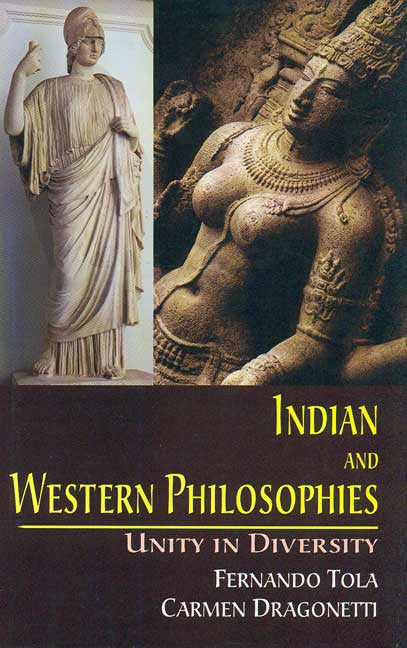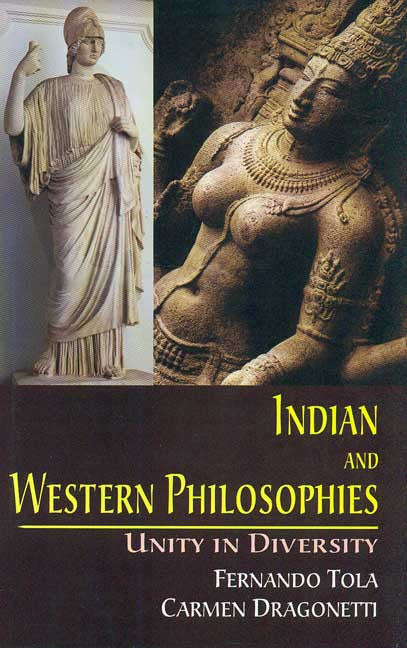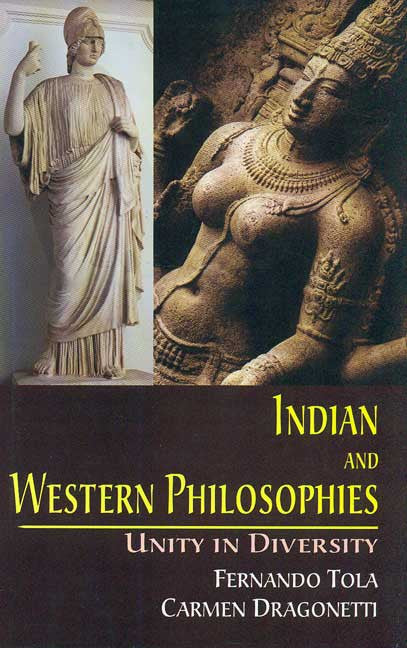Dragonetti and Tola deal in this book with many cases of thematic and methodological coincidences between Indian and Western philosophical thought in order to establish that there is an Indian Philosophy with the same expectations and the same weaknesses as those of Western Philosophy. Thus it is possible to conclude that there is not a "Western Thought characterized by rationality and freedom of mind", opposed to an "Indian Thought characterized by religiosity and irrationality", but only a "Universal philosophical Thought". The method of demonstration is the same resorted to in their books On the Myth of the Opposition between Indian Thought and Western Philosophy (Georg Olms Verlag, 2004), Essays on Indian Philosophy in Comparative Perspective (Georg Olms Verlag, 2009), and Filosofia de la India. Del Veda al Vedanta. El sistema Sankhya (in Spanish, Editorial Kairos, Madrid, Spain, 2008 (first edition) and 2010 (second edition): the parallel presentation in their original languages of Indian and Western philosophical texts together with their own translation of them.
Review(s)
The present book by two specialists, who have worked in many fields of Indian intellectual history, present in this book the beginning of a project to give a systematically ordered and comprehensively documented basis to ...a great number of testimonies for the essential themes and aspects of Indian thoughts, which are comparable to testimonies of "Western" Thought. - Ernst Steinkellner (WZKS, Vienna Journal of South Asian Studies, Vol.XLVIII 2004, pp.224-225)
The book reviewed here targets the desideratum of a fair comparison between Indian and Western Philosophies. The authors...compare selected subjects, methods, and results of Indian philosophical thought to Western counterparts... principal topics or concepts of each epoch are described and subsequently compared to their supposed equivalents in Greek and Western thought. - Peter Stephan (ZDMG, Band 157-Heft 2, 2007, pp. 515-518)
The book under review ...does a valuable service to many younger scholars who are looking for the newer sources from an intercultural perspective. - Anand Amaladass (Polylog, pp. 1-2, http://lit.polylog.org/5/sdtaa-en.htm)
For the scholars on Indian Philosophy this book represents a learned study that combines the exposition of the essential in Indian Philosophy with the corresponding Western debate. This comparative methodology reveals to us many similar questions, searches, achievements in both philosophical traditions. - Miguel Angel Polo Santillan, National University of San Marcos, Lima, Peru (Solar Journal, No.5 ano 5, 2009, pp. 284-286)
About the Author(s)
-
Pages
-
Edition
-
Size
-
Condition
-
Language
-
Weight (kg)
-
Publication Year
-
Country of Origin
-
Territorial Rights
-
Reading Age
-
HSN Code
-
Publisher




